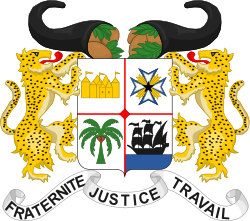African People's Bloc Bloc Populaire Africain | |
|---|---|
| Abbreviation | BPA |
| Founder | Justin Ahomadégbé-Tomêtin Émile Poisson |
| Founded | 1946 |
| Dissolved | July 1955 |
| Split from | Dahomeyan Progressive Union |
| Merged into | Dahomeyan Democratic Union |
 |
|---|
The African People's Bloc (French : Bloc Populaire Africain, BPA) was a political party in French Dahomey (now Benin).